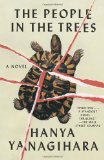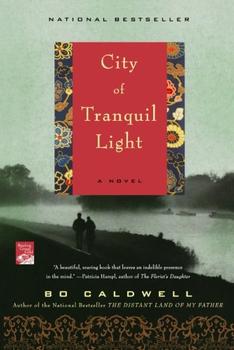Summary | Excerpt | Reading Guide | Reviews | Beyond the book | Read-Alikes | Genres & Themes | Author Bio

A Novel
by Mischa BerlinskiShortlisted for the 2007 National Book Awards,
Berlinsky's excellent first novel is notable on a number of
counts. Not only does it provide a wealth of highly
readable information about the hilltribes that live in the
mountainous area known as the "Golden Triangle" that spans the
borders of five South-East Asian countries (see sidebar), but it
also provides a study of two other cultural groups that are a
mystery to most of us - missionaries and anthropologists!
The protagonist of Berlinski's first book shares the
author's name, but Berlinski assures us that the book is fiction
- not least because the Dyalo hilltribe, so central to the plot,
do not exist. Having said that, Fieldwork started off as
Berlinski's attempt to write a nonfiction account of the
conversion of many of the Lisu people to Christianity, and many
of the characters in the book are inspired by real people, as
explained in the
interview.*
Berlinsky weaves a great deal of factual information (a
little too much for some tastes, but not for this reviewer)
around a riveting "whodunit" in which Mischa (the character)
tries to solve the longstanding mystery of why American
anthropologist Martiya van der Leun, who had lived for a number
of years with the Dyalo people, had without apparent provocation
killed David Walker, the fourth generation son of a family of
missionaries to the Dyalo.
Fieldwork explores multiple clashes of cultures - between
the different hilltribes; between the animists and the
Christians; but mostly between the missionaries and the
anthropologists. Both anthropologists and missionaries are
involved in their own forms of fieldwork but, while not exactly
in competition with each other, represent two conflicting points
of view - rationalists who want to observe versus spiritualists
who want to change.
Berlinsky's treatment of both the anthropologists and the
missionaries is subtle and insightful, enabling the reader to
feel empathy and understanding for both.
Readers who are "for" the work of missionaries will find
themselves with a far better understanding of the realities of
what it takes; and those who are "against" missionary work will
likely find themselves feeling a grudging respect for the Walker
family (and their real-life counterparts, the Morse family*) who
have spent generations embedding themselves into the region for
the sole purpose of preaching "the Word", without personal gain.
The anthropological aspects are equally, if not more,
fascinating, with Berlinsky delving deep into both the work and
psyche of the anthropologist to show us that fieldwork is
"boring, frustrating, dangerous, difficult, enervating, and
lonely".
"Spend five minutes in the anthropology stacks of a major university library and gasp at the size of the world, the sheer wonder and diversity of its inhabitants! What sturdy, impressive men and women wrote those volumes! .... Each one had mastered an obscure language, submerged himself or herself in the foreign; those shelves [are] a testament to curiosity. Every book the product of an obsession." - Fieldwork.
*If you're interested in exploring the book's background further, read the interview at BookBrowse and browse the 1982 Time article on missionaries which includes brief information on the Morse family, on which Berlinsky has clearly based his Walker family. You should also read "A Note On The Sources" at the back of the book, and if you really want to dig deep try Googling terms such as "missionaries to the lisu", "james outram fraser" and "isobel and john kuhn"
Mischa Berlinski was born in New York in 1973. He studied
classics at the University of California at Berkeley and at
Columbia University. He has worked as a journalist in Thailand
and now lives in Rome where he is currently writing about a
woman in Orissa, India who married a snake.
Interesting to Note: Mischa is the son of lecturer and
essayist
David Berlinski who has taught Philosophy, Mathematics and
English at a variety of universities and, most notably, is an
outspoken
critic of Darwinism. He is the author of a number of books
including
The Secrets of the Vaulted Sky: Astrology and the Art of
Prediction, which he wrote with the assistance of the Mischa.
![]() This review was originally published in The BookBrowse Review in March 2007, and has been updated for the
March 2008 edition.
Click here to go to this issue.
This review was originally published in The BookBrowse Review in March 2007, and has been updated for the
March 2008 edition.
Click here to go to this issue.

If you liked Fieldwork, try these:

by Hanya Yanagihara
Published 2014
Readers of exciting, challenging and visionary literary fiction will be drawn to this astonishingly gripping and accomplished anthropological adventure story that combines the visceral allure of a thriller with a profound and tragic vision of what happens when cultures collide.

by Bo Caldwell
Published 2011
Inspired by the lives of the author's maternal grandparents - City of Tranquil Light is a tender and elegiac portrait of a young marriage set against the backdrop of the shifting face of a beautiful but torn nation.
Your guide toexceptional books
BookBrowse seeks out and recommends the best in contemporary fiction and nonfiction—books that not only engage and entertain but also deepen our understanding of ourselves and the world around us.